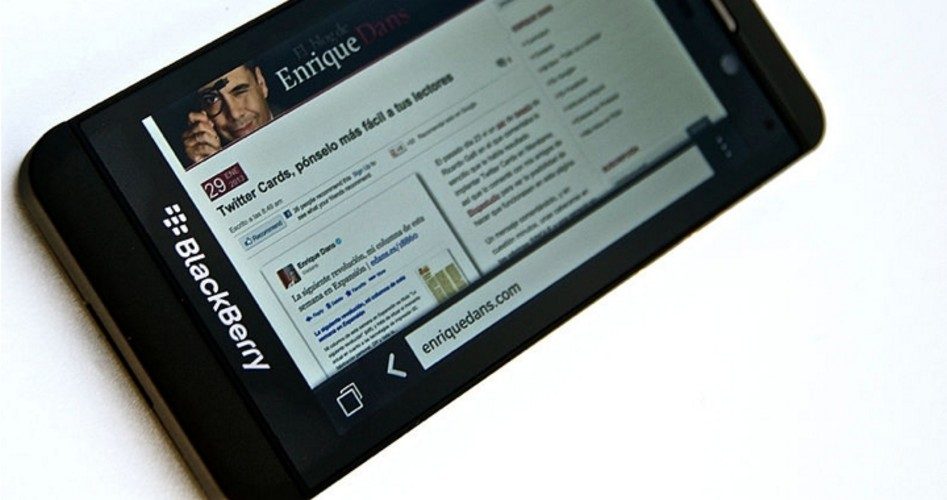
In fiscal year (FY) 2011, the Internal Revenue Service (IRS) spent about $2 million on aircards — devices that enable employees with laptop computers to access wireless networks outside the office — and smartphones that either went unused or were issued to employees who were not entitled to them, a Treasury Department audit has found.
According to the report, issued by the Treasury Inspector General for Tax Administration (TIGTA) in response to President Barack Obama’s 2011 executive order calling for cost-cutting measures across all federal agencies, in FY 2011 the IRS had about 35,000 aircards and 4,400 BlackBerry smartphones assigned to employees. The agency must pay a monthly access fee for each of these devices whether or not the device is used. All told, the IRS shelled out about $11.4 million in such fees in FY 2011.
With so many devices with expensive fees floating around, it is important that they be issued only to employees who absolutely need them. TIGTA found, however, that the IRS routinely issues aircards and smartphones to employees solely on the basis of their “job series classifications,” not on the basis of whether they actually need them. Employees whose job series fit a “high mobility” profile must request mobile devices, but “managerial review” of these requests “does not always ensure that requesting employees have a business need before devices are assigned,” TIGTA wrote. Furthermore, “there is no consistent process followed within the business units when determining whether an exception should be granted for requests from employees in nonprofiled job series,” TIGTA reported, so even individuals not classified as “high mobility” can still obtain devices regardless of need.
Overall, TIGTA found that “2,560 employees may have been assigned an aircard or BlackBerry smartphone without required management approval,” costing taxpayers “more than $950,000 in Fiscal Year 2011, or about $4.8 million over five years.” IRS business unit coordinators claimed that some of the devices were properly assigned but often could not prove their contentions because of inaccurate inventory records. The lack of an accurate accounting was so pronounced that TIGTA announced plans “to initiate a separate review assessing inventory controls over these devices.”
Because mobile devices are often assigned based on job series rather than necessity, many of the assigned devices just sit around gathering dust. “The IRS paid approximately $1.1 million during Fiscal Year 2011 for 13,878 aircards and 754 BlackBerry smartphones that were not used for periods of three months to one year,” reads the audit. “For example, TIGTA identified 45 aircards and 68 BlackBerry smartphones that were not used at all for the entire 12 months of the fiscal year.” The IRS has procedures in place to identify which of its thousands of aircards are not being used, but it is a cumbersome, manual process that often breaks down. The agency has no process in place for detecting unutilized smartphones — or smartphones that are being used only for voice calls and could be replaced by cellular phones with considerably lower monthly fees.
TIGTA made six commonsense recommendations to improve the IRS’s processes and lower its costs for mobile devices, saving taxpayers $5.9 million over five years. Essentially, he asked the agency to ensure that only those who need devices get them and that unused devices are deactivated. The IRS disagreed with four of the recommendations, arguing that its existing procedures are sufficient to address those concerns. Of course, if existing processes were adequate, the audit would not have uncovered so many problems in the first place. “Based on the large number of unapproved and unused devices identified during the audit, TIGTA believes the IRS should take action to enhance its existing controls,” said the report.
Asked for comment on the audit, Mattie Duppler of Americans for Tax Reform told CNSNews.com: “This isn’t just a problem with the IRS, we are seeing this problem across the government…. I commend the administration [for efforts to identify government waste], but more needs to be done to bring about transparency. And this problem isn’t ultimately going to be fixed by simply giving a recommendation to the IRS to act differently. The IRS just isn’t going to change that way.”
And why should it? The IRS isn’t spending its own money, and it needn’t fear going out of business if it disburses too much. Spending too little is the big concern of most government agencies, who fear that if they don’t spend every penny in their budget in one year, Congress will reduce their allocation the following year.
TIGTA’s recommendations, if followed, could indeed save taxpayers millions each year. But much more — including a vast amount of liberty — could be saved by abolishing the IRS and the income tax.



